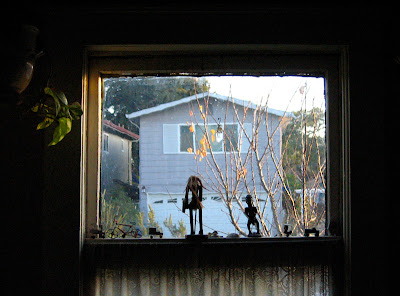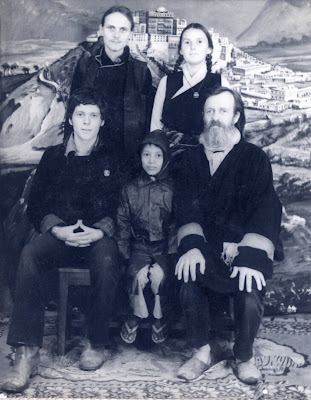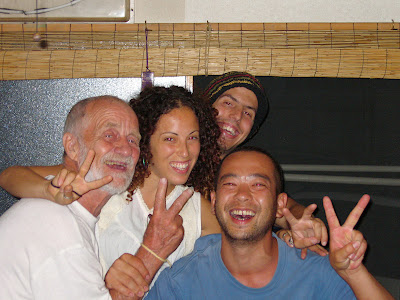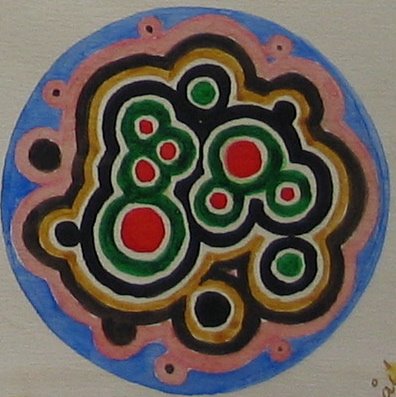Reincarnation is very simple; it’s mental energy. Your physical energy is exhausted at the time of death and the energy of your consciousness separates from your body and goes into another form, that’s all. That’s the simple explanation. Mental energy and physical energy are different. Modern science has some difficulty with this. They do explain some difference between mental and physical energy but Buddhism explains it more clearly.(Lama Yeshe)
Question asked Khandro Rimpoche, a recognized reincarnation:
Can you recall things of your past life?Answer:
It depends on what you would call remembering. When one talks about the previous incarnations one does not necessarily say that it is something like flashbacks. But it is definitely something that one can feel.Think about these three possibilities:
After death there is nothing.
After death there is an eternity, either in heaven or in hell.
After death there is a revision of the life lived and a return to a new life.
Think about why people are born into such different circumstances.
Is it just that everything is meaningless coincidence?
Is it that God is cruel and without caring?
Is it that we are all bound to go through life’s possibilities according to our own actions?
For me there is no doubt about the answers.
Reincarnation is the only way to explain the difference in our lots, without giving up a belief in some kind of ‘divine’ justice. This justice manifests itself in the law ‘What-You-Sow-You-Shall-Reap’ and that makes us directly responsible for our own life, from its original circumstances to the way it develops.
According to the materialistic view all activity, bodily and mental, ceases at death. But since the material elements basically consist of energy and we don’t really know anything about the true nature of this energy; how can we know for sure - or deny for sure – anything that may be going on in the mysterious realm of pure energy?
We have enough reports of phenomena that cannot be explained, such as out-of-body experiences, near-death experiences and instances of clairvoyance and telepathy, to make simple coincidence very unlikely.
The spiritual view postulates the supremacy and unity of Spirit. The difference between this belief and the prevalent Western belief in God is that the Great Spirit inhabits everything and is not in any way separate from creation. This belief is more kin to animism, the most ancient belief of humankind.
Let us take a look at the cycle of life and death.
In the womb, between conception and birth, there is awareness but as yet no concept of life. Awareness is a quality of Spirit, and awareness contains memory.
Memory can be seen as being of three kinds that I will call: instinctive memory, immediate memory, and historical memory.
The instinctive memory is unconscious and it is necessary for survival in the world. It contains memory of skills and/or special phobias.
The immediate memory is the conscious memory of past events. This is what we normally call memory.
And finally the historical memory, which is special for humans, consists of the ‘stories’ that fixes the images of immediate memory into a fictitious past. It is also included in what we normally call memory. Because the historical memory is an individual transformation of the immediate memory, the same event is often remembered completely different by different people.
In early childhood, besides the instinctive memory, there may be shreds of
immediate memory from last life. As the person grows older these memories fade away together with the memories of early childhood.
In the Tibetan tradition there is established a continuity between lives so that one can find the reincarnation of a specific person who has honed his awareness and thereby strengthened his memory. To be recognized he must choose, from among objects, those that were his in his former life.
The reincarnated is of course a different person with different genes derived from different parents and living in different circumstances; so what is it that he has brought with him from a former life, besides the fading memories?
He brings the honed awareness – like a light that dispells the darkness of ignorance, the source of all misery. He brings awareness with instinctive memory of skills that is perceived as giftedness or talent and makes it easy for him to relearn things.
Here we are talking about special individuals, but it’s the same for everybody; mental energy is indestructible in the same way as physical energy is. It can change form but there is a constant connection of causality and nothing is ever lost; so everybody is bringing with them baggage from former lives as fate decides. Cause and effect is like the glue that unifies the universe in the Spirit. In its subtlety it is what seems to be fate.
There is both determination and free will. When free will is in accord with the determined course, good luck ensues.
Death is the reverse of life; similar to the way sleep is the reverse of being awake. There are different stages and different states in death, just like there is in life, but they have a content that we can hardly imagine, except that it may be dreamlike sensations that we have no precise words to describe.
The first stage in death is the transition from life’s complex richness to the bare essence, the pure Spirit of one’s own being. According to tales of near death experiences this seems to begin in bliss, but soon one must confront truth. The mythical ‘judgment’ is the suffering or the joy that this confrontation will provoke, according to the life one has lived.
To go through this process there must be a structure connected to the awareness. This individual structure of awareness I call the Soul, and it is the mental energy that sustains, but is independent of, the physical energy.
The next stage then, is where the karmic repercussions of life have to be gone through. This could be ‘heaven’ or it could be ‘hell’, but in the end it will be exhausted and the wish for a new life will guide the Soul to seek reincarnation.
At conception we are thus transmitted from the unlimited mental realm of death into the bare essence of a one-celled organism. Conception, like death, is a paring down to the essence and there is bliss in both transitions, but it doesn’t last !
In all sentient beings the illusionary is coupled with the indestructible. If one can see through the illusion, only the indestructible is left.
 This is my last painting of 2007, finished yesterday.
This is my last painting of 2007, finished yesterday.



















































